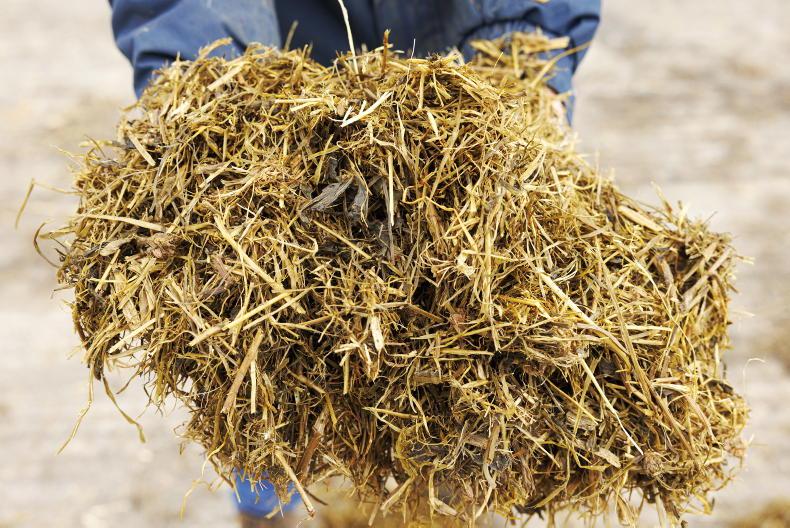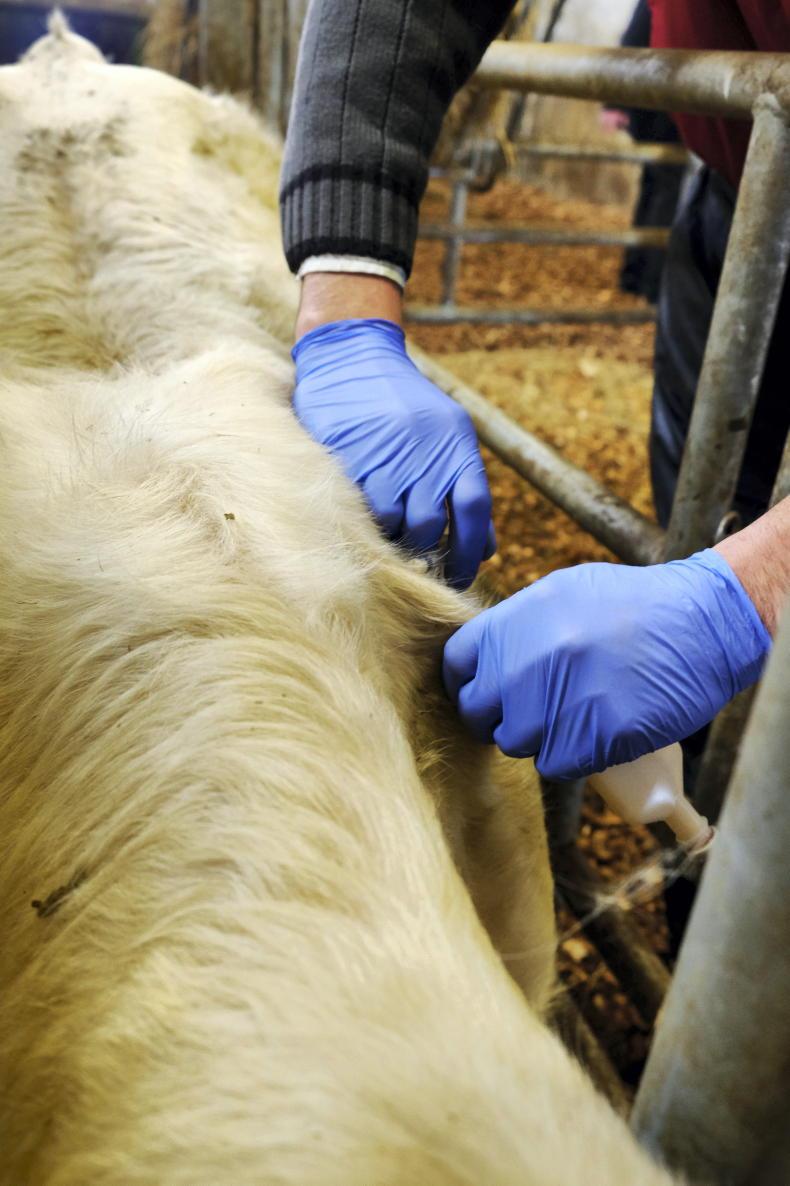The National Beef Welfare Scheme will open for applications in mid-August 2025. At this stage, farmers will be in a position to select the maximum number of calves on which payment will be based, as there will be a clear picture on eligible numbers born between 1 July 2024 and 30 June 2025.
While the terms and conditions for the 2025 scheme year have not been released yet, the Department has stated that the actions will remain unchanged on the 2024 scheme terms and conditions, so there is some information to go on.
Meal feeding
Participants must introduce meal feeding for a period of four weeks pre-weaning and two weeks post-weaning to reduce the stress on calves at weaning time. Calves must be supplemented with compound feeding stuffs containing appropriate minerals and vitamins.

It is expected that a minimum of three silage samples will need to be tested.
Records must be retained showing the date of weaning of each animal that is being submitted for payment under this action. Where groups of calves are weaned on different dates, record the different weaning dates for each group. The recommended daily feeding rate is 1kg/head daily pre-weaning and 2kg/head post weaning.
The terms and conditions state that “if straights (feed materials) are being fed, participants should consult their adviser or nutritionist to ensure that a correct level of nutrition is being achieved.
“Straights (feed materials) must be supplemented with a suitable complementary mineral feeding stuff.
“If two or more straights are being mixed together on-farm, for example, using a mixer wagon or loading shovel, then participants must register with the Department as a home-mixer.”

It is expected that a minimum of three silage samples will need to be tested. \ Donal O' Leary
Vaccination protocols
Pneumonia vaccination: the exact recommendations regarding pneumonia vaccination were not prescriptive in 2024. The terms and conditions stated that “farmers should select the most appropriate product for their holding and circumstances, and should comply with the manufacturer’s recommendations regarding the relevant product.
“Where appropriate, it is advised that participants should consult with their veterinary surgeon for the most suitable vaccination programme for their specific farm.
“A record must be kept by each participant in this option of the purchase and use of vaccines. For a vaccine to work properly, you must follow the vaccination programme for the product being used, and allow the time required for the onset of immunity”.
Clostridial vaccination: A full course consisting of a primary and booster vaccine must be administered.
Calves can be vaccinated from two weeks of age. Farmers should select the most appropriate product for their holding and circumstances and should comply with the manufacturer’s recommendations regarding the relevant product.
Where appropriate, it is advised that participants should consult with their veterinary surgeon for the most suitable vaccination programme for their farm. A record must be kept by each participant in this option of the purchase and use of vaccines.

Vaccination protocols should address the main challenges expected on the farm.
FECs and silage testing
There is no exact specifications known about the requirements for silage testing or faecal testing actions, apart from it including three silage samples or two faecal egg tests.
The Irish Farmers Journal understands that faecal egg tests can be carried out across animal types, removing time-specific constraints for farmers moving weanlings off the farm.
The maximum payment is up to €75/head, split across three different actions, as outlined in Table 1, with only meal feeding the only mandatory option.
The National Beef Welfare Scheme will open for applications in mid-August 2025. At this stage, farmers will be in a position to select the maximum number of calves on which payment will be based, as there will be a clear picture on eligible numbers born between 1 July 2024 and 30 June 2025.
While the terms and conditions for the 2025 scheme year have not been released yet, the Department has stated that the actions will remain unchanged on the 2024 scheme terms and conditions, so there is some information to go on.
Meal feeding
Participants must introduce meal feeding for a period of four weeks pre-weaning and two weeks post-weaning to reduce the stress on calves at weaning time. Calves must be supplemented with compound feeding stuffs containing appropriate minerals and vitamins.

It is expected that a minimum of three silage samples will need to be tested.
Records must be retained showing the date of weaning of each animal that is being submitted for payment under this action. Where groups of calves are weaned on different dates, record the different weaning dates for each group. The recommended daily feeding rate is 1kg/head daily pre-weaning and 2kg/head post weaning.
The terms and conditions state that “if straights (feed materials) are being fed, participants should consult their adviser or nutritionist to ensure that a correct level of nutrition is being achieved.
“Straights (feed materials) must be supplemented with a suitable complementary mineral feeding stuff.
“If two or more straights are being mixed together on-farm, for example, using a mixer wagon or loading shovel, then participants must register with the Department as a home-mixer.”

It is expected that a minimum of three silage samples will need to be tested. \ Donal O' Leary
Vaccination protocols
Pneumonia vaccination: the exact recommendations regarding pneumonia vaccination were not prescriptive in 2024. The terms and conditions stated that “farmers should select the most appropriate product for their holding and circumstances, and should comply with the manufacturer’s recommendations regarding the relevant product.
“Where appropriate, it is advised that participants should consult with their veterinary surgeon for the most suitable vaccination programme for their specific farm.
“A record must be kept by each participant in this option of the purchase and use of vaccines. For a vaccine to work properly, you must follow the vaccination programme for the product being used, and allow the time required for the onset of immunity”.
Clostridial vaccination: A full course consisting of a primary and booster vaccine must be administered.
Calves can be vaccinated from two weeks of age. Farmers should select the most appropriate product for their holding and circumstances and should comply with the manufacturer’s recommendations regarding the relevant product.
Where appropriate, it is advised that participants should consult with their veterinary surgeon for the most suitable vaccination programme for their farm. A record must be kept by each participant in this option of the purchase and use of vaccines.

Vaccination protocols should address the main challenges expected on the farm.
FECs and silage testing
There is no exact specifications known about the requirements for silage testing or faecal testing actions, apart from it including three silage samples or two faecal egg tests.
The Irish Farmers Journal understands that faecal egg tests can be carried out across animal types, removing time-specific constraints for farmers moving weanlings off the farm.
The maximum payment is up to €75/head, split across three different actions, as outlined in Table 1, with only meal feeding the only mandatory option.













SHARING OPTIONS